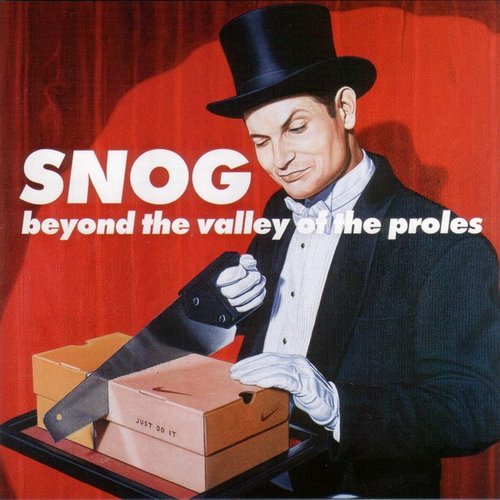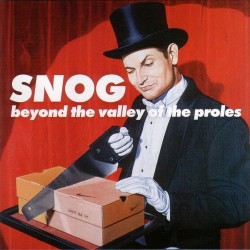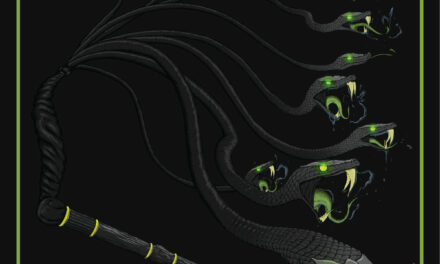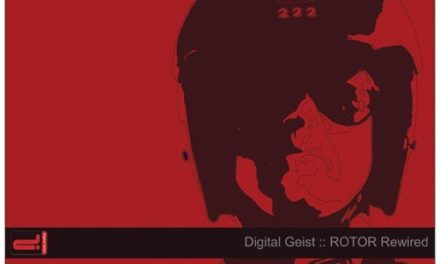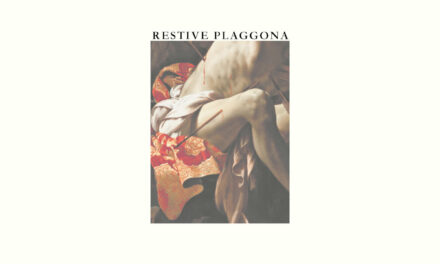Welcome to another installment of The Pitch, wherein one of our senior staff members tries to sell the other on an album they haven’t heard. This time, Alex digs out an oft-overlooked and unexpectedly folky LP from one of his favourite artists.
Snog
Beyond the Valley of the Proles
Karmic Hit/Metropolis/Hymen
Alex says: I remember being totally taken aback when I first listened to Snog’s Beyond the Valley of the Proles. While David (now Dee) Thrussell had been flirting with folky sounds for since Buy Me, I’ll Change Your Life, I wasn’t really prepared for exactly how folky this record ended up being. With nary an electro track to be found, it actually has a lot more to do with the forebears of Snog’s politics, from Billy Bragg to Pete Seeger and on back to Woody Guthrie, albeit with some lush Lee Hazelwood production thrown in for good measure.
I’m pitching this album to Bruce for two reasons: firstly, the announcement of a new record from Dee Thrussell in April has me excited to revisit all the albums in anticipation of its release, and I thought this one was overlooked enough to be worth a new assessment from us. And secondly, knowing that B is a fan of fiery roots music that rails against the man, I’m curious to know how he thinks it measures up to that tradition.
Bruce says: Compared to many of my friends I’ve had limited but positive exposure to Snog, having picked up Buy Me, I’ll Change Your Life and best-of Sixteen Easy Tunes for the End Times some years back. I immediately liked that Thrussell didn’t make the inductive leap that “political industrial” had to equal “screaming and noisy”. The caustically ironic tone which accompanied most of the band’s takedowns of capitalism and consumerism was balanced by a wide and colourful musical palette that’s rarely found. That’s balanced by the tone of Thrussell’s lyrics which, if not necessarily subtle, aren’t just checklists of class war invective, but are couched in more savvy songwriting. Even less explicitly political fare like the folky memento mori of Lee Hazlewood’s “Make The Little Flowers Grow” strikes a sort of Leveller-like chord when picked up by Snog. The image of Death as the Great Equalizer points to the transience of worldly riches, but also the need for worldly justice and equality if the dirt is all that lies ahead of us.
Beyond The Valley of the Proles does sound a tad more forlorn and plaintive than what I’d heard from Thrussell before, especially beginning as it does with the lament of “Bad Planet” (a mood reprised midway with “Citizens”). While I do want to talk about the folk-specific sounds and themes Alex raised, one of the first things that jumped out at me was the mish-mash of twentieth century pop genres and motifs which Snog cycle through on many of the tracks: you’ve got Beach Boys and Everly Brothers harmonies, spaghetti western flourishes, and Lee Hazlewood sweeps. This is a heady toolkit for someone ostensibly working in “industrial” to start out with, and Thrussell makes the most of it by using those elements as a base for electronic layers. The glaze of wet pops, skittery tics, and wheezing bleeps splashed on these structures feels like the aural equivalent of a patina of MSG sprayed overtop a Happy Meal: as good a filter as any through which to experience Valley of the Proles‘ channel-flipping past the garish horrors of late capitalism. This isn’t to say that the music isn’t good; there’s something remarkably clever about presenting the archetypal suit as a lonely magician whose cheap trick of “wealth creation” alienates him from himself as much as others on “Businessman”.
In contrast to that gloss of cheese and irony, the more straightforward folk songs do actually feel more honest and direct. By juxtaposing pop and folk in such a manner it’s almost as if Thrussel’s recreating the historical break with established formulas for the fields of folk in order to try to stake a claim of honest, “authentic” songwriting: while I can’t speak to the Aussie-specific indictments of “Adelaide” (whose switch between slyness and brash military oompah makes me think of Bragg’s “Marching Song of the Covert Batallions“), the vengeful daydream of “Justified Homicide” (a more pastoral and global retread of Morrissey’s “Margaret On The Guillotine”) and the country-fried fatalism of “Waiting” hit the same raw, angry spot in my gut that (as Alex presaged) Guthrie’s work does.
That said, Thrussell is well aware that the contemporary climes of corporatism and hedge funds are very different from the pitched battles Guthrie was fighting when ideological hegemony wasn’t so uniform: less partisan gunfights in bombed-out, wintry cities, more staving off advertising and jetlag in air-conditioned nightmare hotels. In short, you need some postmodern savvy to navigate the woozy nausea of contemporary capitalism, and Snog has that in spades here, underlined with honest sentiment and solid songs. Put Beyond the Valley of the Proles on my credit card, and what the hell: give me the extended warranty, too.

